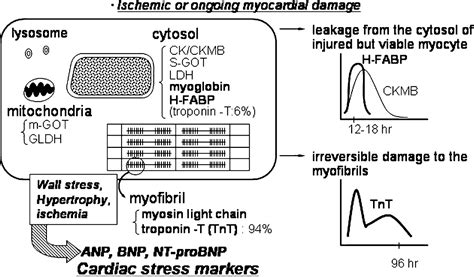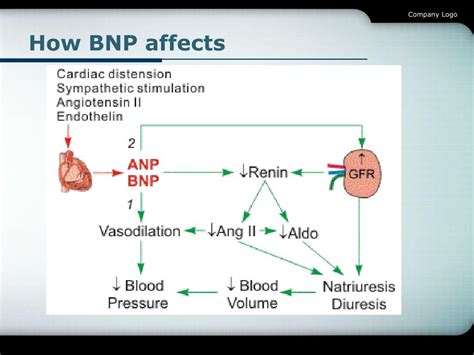Intro
Discover 5 key BNP facts, including its role in heart failure, natriuretic peptide function, and diagnostic biomarker significance, shedding light on cardiovascular health and disease management through BNP testing and analysis.
The importance of understanding BNP (Brain Natriuretic Peptide) facts cannot be overstated, as it plays a crucial role in diagnosing and managing heart failure. BNP is a hormone produced by the heart, and its levels can indicate the severity of heart failure. In recent years, BNP has become a vital biomarker in cardiology, allowing healthcare professionals to make more accurate diagnoses and develop effective treatment plans. As research continues to uncover the significance of BNP, it's essential to stay informed about the latest developments and discoveries.
Heart failure is a complex condition that affects millions of people worldwide, and BNP has emerged as a key player in its diagnosis and management. By measuring BNP levels, healthcare professionals can determine the severity of heart failure and monitor the effectiveness of treatment. Moreover, BNP has been shown to be a valuable predictor of cardiovascular events, such as heart attacks and strokes. With the increasing prevalence of heart failure, it's crucial to understand the role of BNP in diagnosing and managing this condition.
The diagnosis and treatment of heart failure can be challenging, and BNP has become an essential tool in this process. By understanding BNP facts, healthcare professionals can make more informed decisions about patient care, and individuals can take a more active role in managing their condition. In this article, we'll delve into the world of BNP, exploring its mechanisms, benefits, and applications. We'll also examine the latest research and developments in the field, providing a comprehensive overview of this vital biomarker.
Introduction to BNP

How BNP Works
BNP works by binding to specific receptors in the kidneys, blood vessels, and adrenal glands. This binding process triggers a series of responses that help to reduce blood pressure and fluid volume. For example, BNP stimulates the kidneys to excrete more sodium and water, which helps to reduce blood volume and alleviate pressure on the heart. Additionally, BNP causes blood vessels to dilate, which helps to reduce blood pressure and improve cardiac output.Benefits of BNP Testing

BNP Testing in Clinical Practice
BNP testing is commonly used in clinical practice to diagnose and manage heart failure. The test is typically performed using a blood sample, and results are usually available within a few hours. BNP levels can be interpreted as follows: * Low BNP levels (<100 pg/mL): Indicates a low risk of heart failure. * Elevated BNP levels (100-500 pg/mL): Indicates a moderate risk of heart failure. * High BNP levels (>500 pg/mL): Indicates a high risk of heart failure.Applications of BNP

Future Directions for BNP Research
Research on BNP is ongoing, and several future directions are being explored, including: * Developing new BNP-based therapies: Researchers are exploring the development of new therapies that target the BNP pathway. * Improving BNP testing: Researchers are working to improve BNP testing, including the development of more sensitive and specific assays. * Exploring new applications for BNP: Researchers are exploring new applications for BNP, including its use in diagnosing and managing other cardiovascular conditions.BNP and Heart Failure

BNP and Cardiovascular Events
Elevated BNP levels have been shown to predict cardiovascular events, such as heart attacks and strokes. This makes BNP an excellent biomarker for identifying individuals at high risk of cardiovascular events.BNP Testing in Different Populations

BNP Testing in Special Populations
BNP testing can be used in special populations, including: * Pregnant women: BNP testing can be used in pregnant women to diagnose and manage heart failure, although reference ranges may vary. * Individuals with kidney disease: BNP testing can be used in individuals with kidney disease to diagnose and manage heart failure, although reference ranges may vary.Conclusion and Future Perspectives

Final Thoughts
BNP testing has revolutionized the diagnosis and management of heart failure, and its applications continue to expand. By understanding BNP facts, individuals can take a more active role in managing their condition and improving their overall health.What is BNP, and how does it work?
+BNP is a hormone produced by the ventricles of the heart, and its primary function is to regulate blood pressure and fluid balance. It does this by promoting the excretion of sodium and water, which helps to reduce blood volume and alleviate pressure on the heart.
What are the benefits of BNP testing?
+BNP testing has several benefits, including early diagnosis of heart failure, monitoring treatment effectiveness, predicting cardiovascular events, and guiding treatment decisions.
How is BNP testing used in clinical practice?
+BNP testing is commonly used in clinical practice to diagnose and manage heart failure. The test is typically performed using a blood sample, and results are usually available within a few hours.
What are the future directions for BNP research?
+Research on BNP is ongoing, and several future directions are being explored, including developing new BNP-based therapies, improving BNP testing, and exploring new applications for BNP.
Can BNP testing be used in different populations?
+Yes, BNP testing can be used in different populations, including adults, children, older adults, pregnant women, and individuals with kidney disease.
